
(Assalamo ‘alaykum, like my previous two posts 1 and 2, what follows is a compilation of benefits transcribed from a tafseer class that I am sharing with the encouragement of my teacher, may Allah preserve her.)
Allah says:
وَإِذۡ أَخَذۡنَا مِيثَـٰقَ بَنِىٓ إِسۡرَٲٓءِيلَ لَا تَعۡبُدُونَ إِلَّا ٱللَّهَ وَبِٱلۡوَٲلِدَيۡنِ إِحۡسَانً۬ا وَذِى ٱلۡقُرۡبَىٰ وَٱلۡيَتَـٰمَىٰ وَٱلۡمَسَـٰڪِينِ وَقُولُواْ لِلنَّاسِ حُسۡنً۬ا وَأَقِيمُواْ ٱلصَّلَوٰةَ وَءَاتُواْ ٱلزَّڪَوٰةَ ثُمَّ تَوَلَّيۡتُمۡ إِلَّا قَلِيلاً۬ مِّنڪُمۡ وَأَنتُم مُّعۡرِضُونَ (٨٣)
{And remember when We took a covenant from the Children of Israel, saying: Worship none but Allah Alone and be dutiful and good to parents, and to kindred, and to orphans and the poor, and speak good to people […]}
[Surah al-Baqarah 2:83]
Sometimes parents feel as though their children are their personal property in such way that they feel entitled to call them a donkey, stupid, foolish or ignorant… No, they do not have this right! We have to protect our children’s dignity and emotions. Mocking, scolding and degrading your child will do nothing but bring about rebellion in him and harshness. He will not know how to be gentle.
The best way to teach your children is to set an example. They will not accept your advice if you are not good in yourself. Do not utter a bad word. No mocking. No sarcasm. No degrading words. Stop this and start saying good and encouraging words. Start showing your positive emotion. Start expressing your love and care for them. Start excusing them. Give them excuses: Excuse their weakness, their ignorance and excuse the fitnah they are living in. Bear in mind that they are not as willing as you are to give up their desires: you do so because you have ihtisaab, you know if you leave certain things for Allah’s sake there is a compensation. A child doesn’t understand that well yet. He believes what he sees right here right now, his belief in the unseen is not strong yet. “I want my pocket money. I want a chocolate. I want to go out and play…” this is what he can fully and strongly understand now. You may be able to say, “I will leave this for Allah’s sake because I want Jannah.” You want Jannah and your child might want it too but she is not able to comprehend this yet because a child will not comprehend except what he can see now and, step by step, you must start tying it up with Allah. Talking about Allah, telling her how, if she doesn’t pray, you cannot tell but Allah can see her and if Allah loves her, He will make everyone love her. If Allah is pleased with her, He will make everyone pleased with her. But tell her to remember that nobody can cheat Allah. And continue this way to create a connection, step-by-step. Don’t let your child fear you, let him fear only Allah, and that must be the correct fear: That fear that makes him go and say “Allah forgive me!” a fear which will make him take the right steps. Not a fear that will lead him to despair, but fear with hope. So he fears Allah and he hopes that Allah will forgive him if he goes off the right track. This is our duty.
Take the means to make them love you. If they do not love you, you are going to lose them. Do not lose them! They have to really love you in order to listen to you, to imitate you, to love your way, to love the way you dress, to love your friends, to love your life… first they have to love you and they have to know you are the first one to care for them ad have mercy for them. Get that security firmly established in their heart. Set an example first. They have to feel that the most disturbing and painful punishment for them is that you are displeased and unhappy with them. Tell them that. Don’t shout. The more you shout, the more you will lose their attention and the more they will lose their positive feelings towards you. And the more they lose these positive feelings the more you will lose them. The more you shout the more you lose. Allah did not put the khayr in shouting, Allah put the khayr in gentleness. Gentleness will bring every goodness. Being cruel and tough will not bring except disasters. This is true especially nowadays: in the past children used to fear their parents and know their limits, but now there are no limits. The fitnah is very strong, the children now became extremely daring; they can talk back. We do not say we are going to be lax with them. There are still rules we must establish, but when we set and enforce those dos and don’ts we do so with respect. Tell them, “Promise me not to do this again” tell them, “promise me and I am going to believe your promise” and then when they do again what you made them promise not to do, say “… but you promised me and I believe you…” make him feel guilty for making you unhappy and doing something that displeases his Lord. Don’t make him fear you. Because when he is 12 years old he will not fear you anymore, he might be taller than you! And you are going to look up at him! From now, let’s follow the way of the Prophet (salla Allahu ‘alayhi wa sallam): he did not hit, he did not scold he did not say bad words, yet he was the best teacher ever. Start by taking an oath never to say bad words to your children ever again; never to degrade them, never to hit them. They have to feel that are loved, cherished, respected. And when they make a mistake I am going to give an excuse: They don’t have knowledge, they don’t have our comprehension, they don’t have that desire for Jannah; they desire the pleasures of this world. Their heart is still attached to this world and not attached to Jannah yet. You have to understand this, and deal with it with wisdom and gentleness. We take the means and we bear in mind that Allah is the One who will guide their hearts to Him, to the Haqq, to the true Islam; but at least we tried for what we were able by educating him.
Take the means that will make them love you; and when they love you, they will love your way. When they love you, they will love Islam. They will know the beauty of Islam because they are experiencing the beauty of Islam. They are benefitting from his mother now, because when she understood about Islam, she changed. She is now respecting them, she is more loving, she is more gentle, she is more giving, she is more understanding… so you are now a reason for them to love Islam. And for you and me this is enough in front of Allah: “Oh Allah, I have done my duty. I took the means. As for guidance, it is up to you Allah, but I did take the means.” Imagine if your child is 15 years old, and you used to beat him and shout at him and force him to go and pray and force him to do this and that…and you used to say bad words about him… and he now hates everything about Islam and you realise that you were one of the reasons for him not to be guided. You repelled him. This is a great pain and a great guilt.
Think of a mother who, even when she advises for the sake of Allah, is harsh, shouts, nags, tells her children they are going to the Hellfire … imagine what kind of marriage and what kind of home she is making. What kind life they are living. And then, she starts understanding that no, that’s not the way Allah has told us to deal with things! She starts being neat and presentable for her family. When her husband comes home she doesn’t start complaining immediately but she receives him with a smile; she lets the children receive him with a smile. She tries to make her requests to her husband minimal. She makes her child love to come home: to come home to a mother that loves him, to a nice and friendly atmosphere. So start promising: I will never shout at my children and disgrace them again. I will never tell them bad words. When they tell me something, I will not make fun of them or tell them it is nonsense. I will listen to them. And when I want to advise them, I will do so in a nice way, appreciating their innocence and that they have desires, appreciating the great fitnah they are living in, appreciating they don’t have my mind, they are not grownups, they don’t understand like adults can understand. So make sure you don’t deal with them as though they were you, but deal with them according to their state, their weakness. They are affected by the people around them, they might be confused: who is right? My mother or my friend? Or my friend’s mother? My friend’s mother is very relaxed, she says ok to everything, she is very loving. But my mother? Everything is “no… no… no, haram… haram … haram” and she is not flexible; she does not listen and she does not give excuses… and she is making my life so hard… This is what you will achieve: a child hating you and hating your religion and hating what you say. So there has to be strong determination: Allah is ar-Rafeeq, the Gentle. Allah loves gentleness, He commanded us to be gentle and the people that are most deserving of our gentleness are our family. There are sisters that are very nice and very friendly with their friends. They laugh and have fun and are easy going; they seem to know how to say good words, how to give attention and how to give care. They know how to pick presents and to make good food for their friends, but with their husband and children they are mean. Sure, each of those sisters loves her friends for the sake of Allah, but what about responsibilities? You are responsible to try to make your child love Allah.
Allah says:
يَـٰٓأَيُّہَا ٱلَّذِينَ ءَامَنُواْ قُوٓاْ أَنفُسَكُمۡ وَأَهۡلِيكُمۡ نَارً۬ا وَقُودُهَا ٱلنَّاسُ وَٱلۡحِجَارَةُ
{O you who believe! Ward off from yourselves and your families a Fire whose fuel is men and stones, […]}
[Surah at-Tahreem, 66:6]
Protect yourself and your family. How can I protect my child if I don’t teach him to love Islam? He will love Islam through me and he will think practicing Islam has brought him this lovely mother, this considerate, caring mother. A mother that excuses him, a mother who defends him, a mother that is there for him, a mother who taught him how to love Allah, a mother who taught him about Jannah before talking to him about the Hellfire. It is more befitting for a child that you start telling him about Jannah and the mercy of Allah. The pen is not writing for him yet, so we must invest the first years making them love Islam: the rulings of Islam, the mercy of Islam, the gentleness of Islam, the giving of Islam… he will respect you and he will love you. And then if you are displeased with him, this in itself would be enough punishment for him. This is the best way to affect a child and work on his heart: for his heart to feel ashamed of himself; make him feel that in a gentle way, without shouting or hitting or severe punishment.
Some people, because of their zeal to do what is right, may act with excessive strictness towards their children. They might stress “no this and no that”… “No! a seven year old should not wear pyjamas, she should be in a night gown…” things like these (unnecessary restrictions for a child’s age and situation). The result on the children is likely to be bad. While, when they are educated and given the choice, they will start to correct themselves. But as long as you are nagging and forcing, they will hate it, and this is the human nature. Don’t ignore this fact. You need to wait for the right time for Allah’s sake. You need to know when to excuse, when to forgive. We need to rectify our relationship with our children because our children are our responsibility. We have responsibilities towards our husbands, for example, but we are not responsible for them. On the Day of Judgement you will be asked if you were a good wife to him but you will not be asked about him. Who will you be asked about? You will be asked about your children. It is a great responsibility, we ask Allah to guide them and we try to do our best. If you take the means and you do what you should do, this will make you feel calm. Allah knows you did all you were able to do. But if the means you took led to your children to repulsion, then you will feel immense regret. Your heart will be squeezed knowing you are one of the reasons for this. One of the reason they may hate to wear hijab, why they hate niqaab, why the hate memorizing Qur’an… imagine feeling it is too late and you were the one who participated in their repulsion! But when you take the means to try to make them love you, and love what you do, and love what you say, and love Qur’an, and love Allah and you are understanding and gentle and you are doing the best you can do, then your duty towards them will be fulfilled.
If there is a halal opportunity to make them happy, take it! Avoiding the haram is often a struggle in today’s world, but there is still a lot of halal! Taking them to a friend who has children the same age is halal; taking them to the park is halal; making them good food is halal; playing with them is halal; joking with them is halal; trying to be nice is halal; making them feel secure and happy with their family is halal… and so on. We have a lot of halal options. It is a battle we are living, but there is a solution. Allah wouldn’t put us in a situation to which there is no solution. So, do not allow the haram, but do try to make substitutions with the halal whenever it is possible.
This is what Allah says in the Qur’an regarding the way the Prophet (salla Allahu ‘alayhi wa sallam) used to teach the Sahabah:
فَبِمَا رَحۡمَةٍ۬ مِّنَ ٱللَّهِ لِنتَ لَهُمۡۖ وَلَوۡ كُنتَ فَظًّا غَلِيظَ ٱلۡقَلۡبِ لَٱنفَضُّواْ مِنۡ حَوۡلِكَۖ فَٱعۡفُ عَنۡہُمۡ وَٱسۡتَغۡفِرۡ لَهُمۡ
{And by the Mercy of Allah, you dealt with them gently. And had you been severe and harsh¬hearted, they would have broken away from about you; so pass over their faults, and ask Allah’s Forgiveness for them; […]}
[Surah Aal-‘Imraan 3:159]
By Allah’s mercy, he (salla Allahu ‘alayhi wa sallam) was gentle and lenient, so they loved him, they were very attached to him and obeyed hi lovingly. And if he had been harsh and strict they would have ran away from him and be repelled. Here’s the Qur’an: here is how to do da’wah.
You need to give your children confidence in themselves. Tell them: “You are a good Muslim,” “You will be a caller to the Haqq, insha’Allah,” “I ask Allah for you to be one who supports Islam. And you will show people the beauty of Islam by your manners.” Give them this kind of words, “I hope one day you will spread knowledge and the correct aqeedah”. Give them good words, encouraging words. They are in great need of this.
What a tragedy it would be if a salafi were to be the worst mother! A mother that – due to her grasp and understanding of the correct way – was intransigent with her children and expected them to immediately follow suit… all the while thinking that she is being pious to Allah by being inflexible to the point of hostility to her children and not talking to them. The salafi should be the best mother because she knows the guidance from Allah. She is the one who understood how to deal with these hearts. She has the tools to do so. So, salafis are the ones who should apply this. Yet people – except those on whom Allah has mercy – are away from Qur’an and Sunnah. They might choose what they like and leave what they are not convinced with or what is not compatible with their personality. “I know that I should not be so nervous and have unattainable standards with the children … but I am like that and they need to accept it… they need to change…” So, basically, their mother is a bad mother and they need to accept it?! You have to change, religion should change us. We have to change according to what we learn.
We have a lot of evidence on how the Prophet (salla Allahu ‘alayhi wa sallam) treated people: from his wives, to the children, to his little boy servant Anas ibn Malik .
Learning about the Name of Allah Ar-Rafeeq will give us great insight on how Allah commands us to treat the people.
Allah is the Gentle, this religion is based on mercy and wisdom. It is a great religion and anyone abiding by it will be great. The Sahabah (rady Allahu ‘anhum) became great – the greatest generation ever on this earth – how? By abiding to the Qur’an. So whoever abides by this great religion and practices it will take from its greatness. And greatness not in terms of prestige or fame, but in terms of a person’s reality and worth and of the strength and ability that Allah will grant him/her: a great Muslim that can change the world and can spread Islam. Islam will fix everything. Put it into practice and it will fix everything.
 Assalamo alaykum wa rahmatullahi wa barakatuhu.
Assalamo alaykum wa rahmatullahi wa barakatuhu.
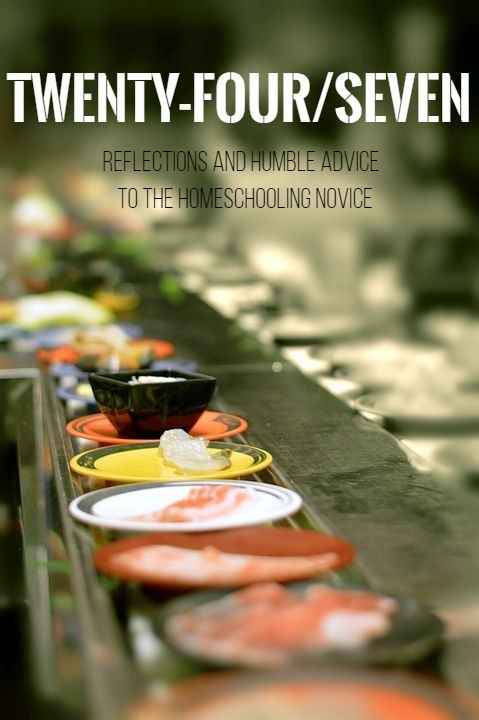
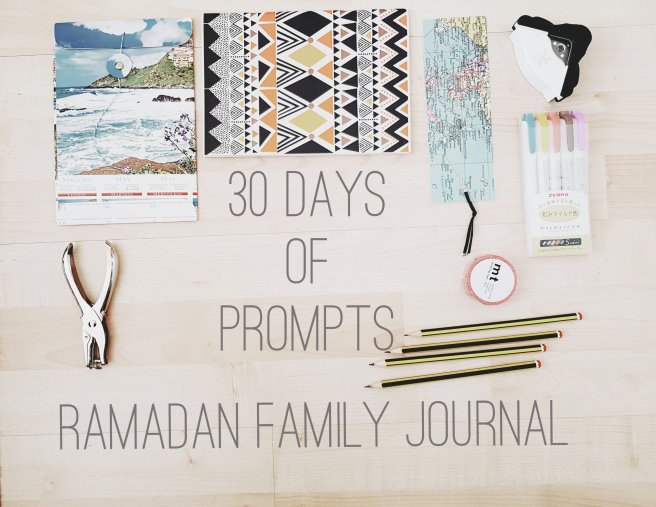

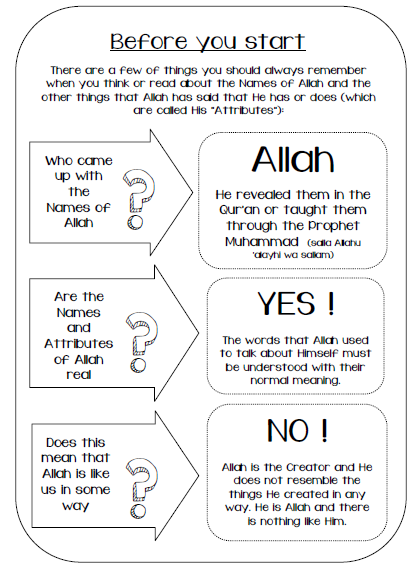
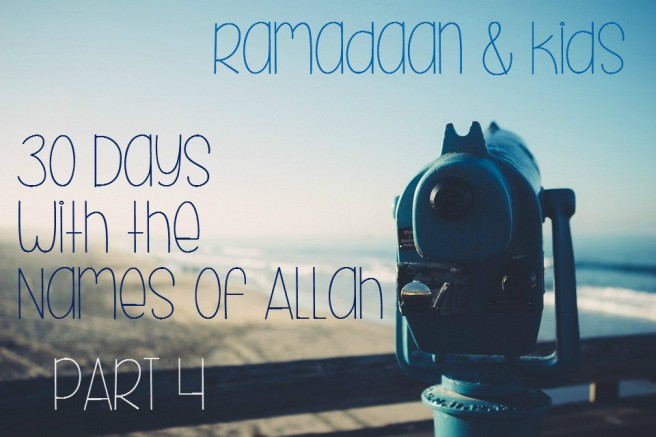
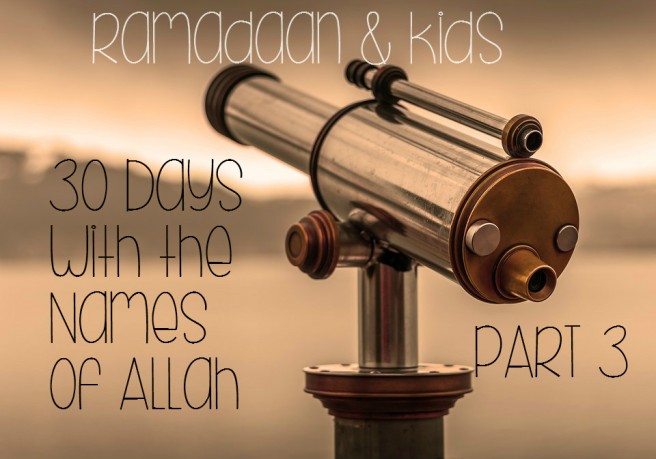
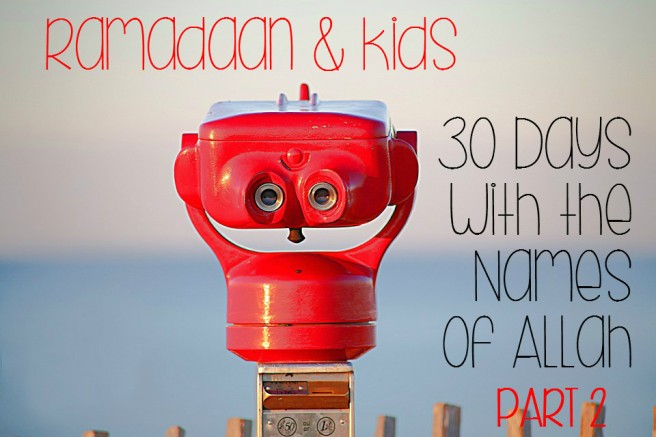
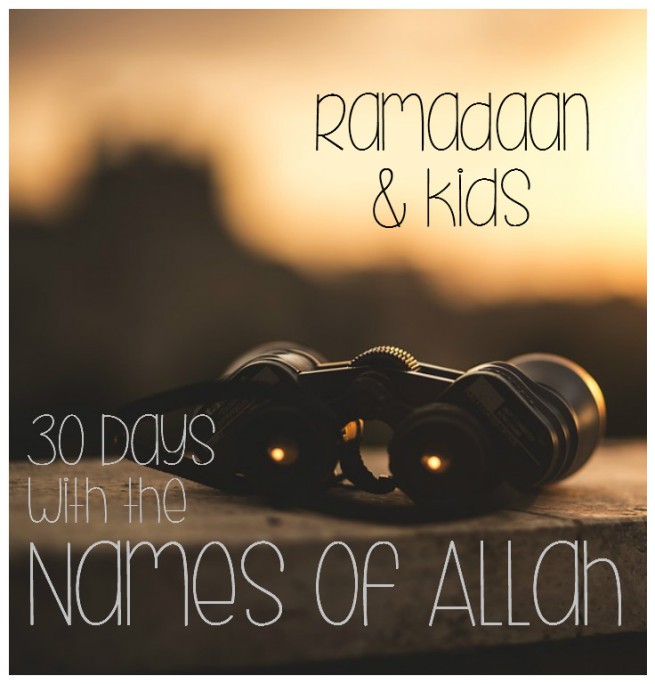
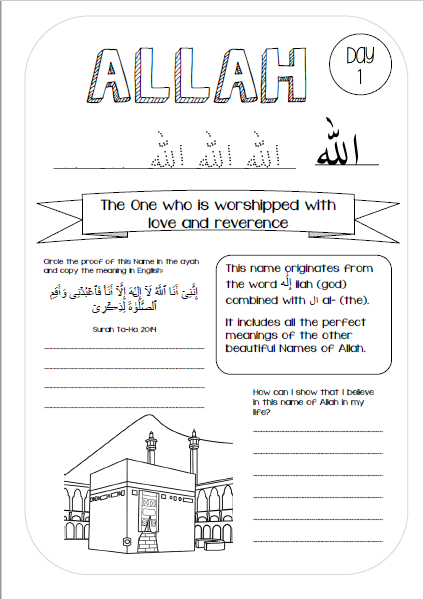

You must be logged in to post a comment.